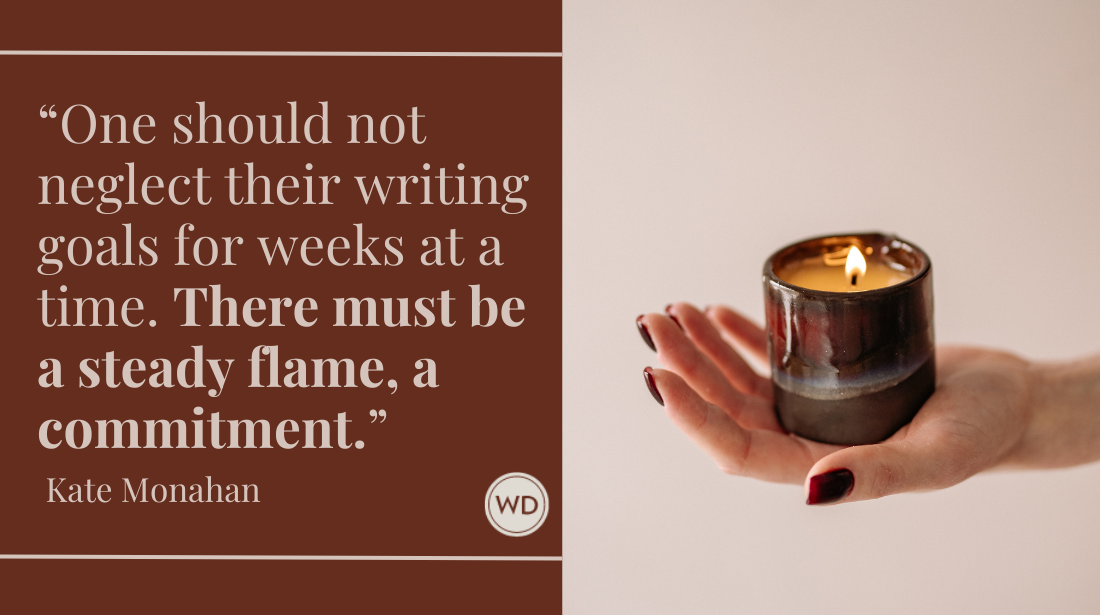Stay the Course: Notes from The Literary Writers Conference
I had the chance to attend The LWC} NYC (Literary Writers Conference)* this past weekend which was cosponsored and held at The New School in Greenwich Village. This conference brought…
I had the chance to attend The LWC} NYC (Literary Writers Conference)* this past weekend which was cosponsored and held at The New School in Greenwich Village. This conference brought together writers, publishers, and agents. There were some excellent panels: Rejection, Revision, Resubmission; Publishing in Lit Magazine; Literary Agents 101; The Anatomy of a First Novel (where first time novelist Eugenia Kim, author of The Calligrapher’s Wife talked about her journey towards publication and the hurdles along the way).
I do believe I walked away from the weekend with some grains of knowledge. It can be overwhelming to sift through all the advice and know what’s worth holding on to. One panelist went as far to say “You don’t want to be too informed.” This is true in a way. Information overload can be paralyzing. The reality of the information can make one cynical. Thankfully, many points were hit over and over again. When they keep telling you the same thing, that's when your ears prick up and you listen.
Key points the conference drove home:
Do Your Homework
-Panelists stressed how important it is to dothe research.Read the literary magazines you’re submitting to. Become familiar with the writers they publish. “Do not,” Mosaic editor Ron Kavanaugh says, “Send out a mass email to journals.” It’s informal and unprofessional. Editors want to see that you know their magazine well and are submitting because you think your work fits their aesthetic. Buy a copy online, look through a copy at a bookstore, or better yet--subscribe to the journals you’d like to see yourself in.
-Don’t randomly submit to agents. “No query blasts!” says agent Ira Silverberg. “Never, ever!” They offend agents. Be familiar with the agents you’re querying. Get their name right, their gender right. Because of his unique name, Ira has received many emails that begin, Dear Ms. Silverberg. In those cases, he doesn’t read any further. Take time to learn which agents are representing authors you admire. Editor Becky Salentan suggests: “Work backwards from acknowledgement page from books you love. Find out who the author’s agent and editor is.”
Accept Rejection
-TJ English, author of Havana Nocturne says to “look at rejection as part of the collaborative revision process.” English spoke about how his long time agent, Nat Sobel, rejected one of his non-fiction proposals. Sobel sent English back to the drawing board numerous times. Sobel says, “You can see real talent with what a writer does with the comments you give them.” Agents will get involved in the revision process if the work is promising. Just because you’re rejected once, twice, or twenty times doesn’t mean the work isn’t good. It just might not be there yet, the panelists agreed. It may need one more revision.
-Rob Spillman, editor of Tin House, says to take personal rejection notes very seriously.The literary journal panelists explained the rejection process. Typically there are three types of rejections. The first: a simple no thanks. The second: an invitation to submit again. The best: that personal note Spillman spoke of. Take your time revising. Write something new, better. “Do not,” Spillman stressed, “resubmit again right away.”Spend time honing your craft. Do not appear too eager, too desperate. “We want to chase you,” Spillman pointed out, “it’s a courtship.”
-Eugenia Kim jumped many hurdles before an agent finally signed her. She told the group she sent out 45 query letters to agents. Many of those agents did ask to see a manuscript, but not a single agent chose to represent her in the end. At that point, Eugenia decided to take another three months to work on her book The Calligrapher’s Wife before querying again. As it turned out, it was timing and serendipity; agent Nat Sobel saw one of Eugenia’s stories in The Potomac Review. She was discovered through a journal, not by a query letter.
Don’t Give Up
The panelists were clear: publishing is in a state of flux right now. Signing with an agent, finding an editor, the whole of it just isn’t as easy as it once was. However, and this was stressed: agents and editors WANT to find good work. Journals want to discover new voices; they want to be the ones to say: We published him/her before anyone else did.“Work hard to make your first line, first paragraph, and first page as good as it can be,” A Public Space’s Brigid Hughes recommends.The writer must hook the reader immediately and not let them go. When you do get rejected, brush yourself off and try again. “The more you do it the less fragile your ego becomes,” TJ English promises. It always comes down to the work. When the work is good, it will find a home.“Deep down,” editor Judith Weber said, “the reason we all do this is because we love literature.”
“Life's real failure is when you do not realize how close you were to success when you gave up."
-Unknown
*Co-sponsored by The New School Graduate Writing Program, LWC}NYC is a program of the Council of Literary Magazines and Presses [clmp], in partnership with Sobel Weber Associates, The National Book Foundation, Sterling Lord Literistic and Poets & Writers.








